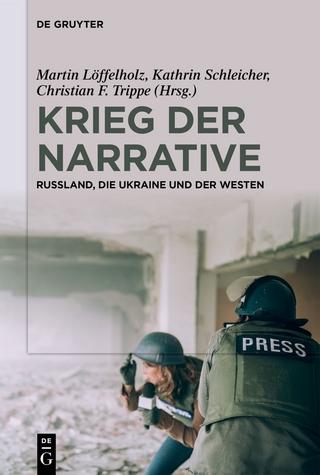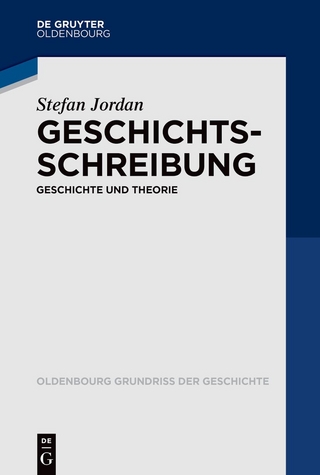
Dealing with Dark Pasts
A European History of Auto-Critical Memory in Global Perspective
Seiten
2025
Cambridge University Press (Verlag)
978-1-009-50740-0 (ISBN)
Cambridge University Press (Verlag)
978-1-009-50740-0 (ISBN)
- Noch nicht erschienen (ca. Januar 2025)
- Versandkostenfrei
- Auch auf Rechnung
- Artikel merken
The political focus has shifted from recognizing states' victories to their own historical crimes. This Element explores the rise of 'auto-critical memory', its globalization, and current debates on remembering colonial pasts. It examines case studies across Europe and questions the usefulness of memory in achieving social and racial justice goals.
Since the end of the Second World War, the political rationale to remember the past has shifted from previous focus on states' victories, as these began commemorating their own historical crimes. This Element follows the rise of 'auto-critical memory', or the politics of remembrance of a country's own dark past. The Element explores the idea's gestation in West Germany after the Second World War, its globalisation through initiatives of 'transitional justice' in the 1990s, and present-day debates about how to remember the colonial past. It follows different case studies that span the European continent – including Germany, France, Britain, Poland and Serbia – and places these in a global context that traces the circulation of ideas of auto-critical memory. Ultimately, as it follows the emergence of demands for social and racial justice, the Element questions the usefulness of memory to achieve the goals many political actors ascribe to it.
Since the end of the Second World War, the political rationale to remember the past has shifted from previous focus on states' victories, as these began commemorating their own historical crimes. This Element follows the rise of 'auto-critical memory', or the politics of remembrance of a country's own dark past. The Element explores the idea's gestation in West Germany after the Second World War, its globalisation through initiatives of 'transitional justice' in the 1990s, and present-day debates about how to remember the colonial past. It follows different case studies that span the European continent – including Germany, France, Britain, Poland and Serbia – and places these in a global context that traces the circulation of ideas of auto-critical memory. Ultimately, as it follows the emergence of demands for social and racial justice, the Element questions the usefulness of memory to achieve the goals many political actors ascribe to it.
Introduction; 1. The emergence of auto-critical memory; 2. Autocritical memory and democratisation: memory as a 'model'; 3. Auto-critical memory and the crimes of empire: can memory achieve racial justice?; Conclusion; Bibliography.
| Erscheint lt. Verlag | 31.1.2025 |
|---|---|
| Reihe/Serie | Elements in Historical Theory and Practice |
| Zusatzinfo | Worked examples or Exercises |
| Verlagsort | Cambridge |
| Sprache | englisch |
| Themenwelt | Geisteswissenschaften ► Geschichte ► Geschichtstheorie / Historik |
| ISBN-10 | 1-009-50740-0 / 1009507400 |
| ISBN-13 | 978-1-009-50740-0 / 9781009507400 |
| Zustand | Neuware |
| Haben Sie eine Frage zum Produkt? |
Mehr entdecken
aus dem Bereich
aus dem Bereich
Russland, die Ukraine und der Westen
Buch | Softcover (2024)
De Gruyter (Verlag)
CHF 55,90
Geschichte und Theorie
Buch | Softcover (2024)
De Gruyter Oldenbourg (Verlag)
CHF 34,90
wie Irritationen historisches Denken anregen
Buch | Softcover (2024)
Kohlhammer (Verlag)
CHF 96,55


